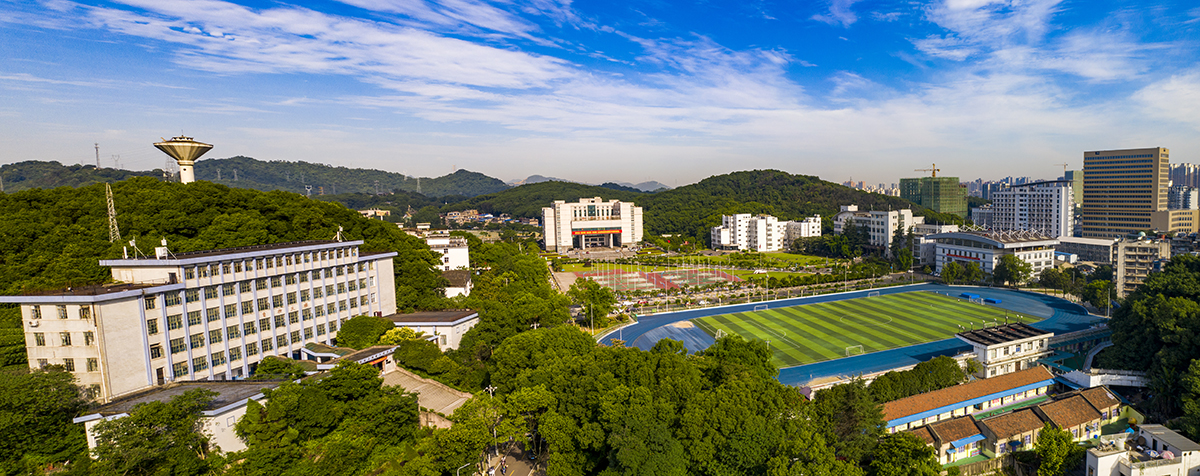The School of History and Culture traces its roots back to the History Teaching and Research Section, which was established in 1980. In 1981, it began recruiting cadres for training programs. The History Department was established in 1983, and in 1984, it started admitting students to the history education program. By 1986, the department had grown into a full-fledged History Faculty, which began enrolling full-time undergraduate students. In 1996, the faculty initiated a collaborative effort with Hubei University to jointly train master's students. In 2003, the faculty expanded its offerings to include social work, enrolling the first undergraduate students majoring in this field. In 2005, the tour guide service major was added, and the faculty began recruiting specialized students in tour guide services. In 2008, the History Faculty was renamed the School of History and Culture. The following year, in 2009, it was recognized as a key research base for humanities and social sciences among universities in Hubei Province.
The School continued to grow and diversify its academic programs. In 2011, it introduced a dual-degree program in history and geography and was approved to offer two second-level master's degree programs in education history and history curriculum and teaching theory. In 2013, Chinese History was designated as a "Rainbow Scholar" discipline in Hubei Province. Two years later, in 2014, the School was authorized to confer the Master of Social Work (MSW) degree. The social work and tourism management majors also gained national vocational training and appraisal qualifications, leading to the enrollment of undergraduate students in tourism management and service education. In 2015, the discipline of Social Work was recognized as a "Hubei Provincial Graduate Workstation," and the School began enrolling graduate students in social work. In 2016, Chinese History received the prestigious "Chutian Scholar" designation in Hubei Province.
In 2018, the School was granted approval to offer an academic master's degree in Chinese History, and it began enrolling graduate students in this program in 2019. That same year, the China History Teaching and Research Section was honored as an exemplary grassroots teaching organization in Hubei Province. The history major was also recognized as a provincial first-class undergraduate program construction point. By 2020, both the tourism major and service education major received approval as provincial first-class undergraduate program construction points.
Today, the School of History and Culture boasts a comprehensive organizational structure, including a Party Committee, two teacher party branches, and three department offices for History, Social Work, and Tourism Management. It also houses five administrative and teaching support institutions, such as the Party and Government Office, Teaching Office, Academic Affairs Office, Discipline Office, and MSW Education Center, as well as three academic institutions: the Teaching Committee, Academic Committee, and Degree Assessment Committee. Furthermore, there are seven teaching and research sections covering Chinese History, World History, Curriculum Teaching Theory, Social Work Theory, Social Work Practice, Tourism Management, and Hotel Management.
The School offers a range of advanced academic programs, including one first-level academic master's degree in Chinese History, one first-level professional master's degree in Social Work, and one second-level professional master's degree in subject teaching. The social work major, designated as a provincial graduate workstation, and the Chinese historiography program, recognized as a "Chutian Scholar," are part of a construction project in Hubei Province's 14th Five-Year Plan. The School offers three undergraduate majors: history, social work, and tourism management and service education, two of which are provincial first-class undergraduate program construction points (history and tourism management and service education). It also features a provincial virtual simulation experimental teaching first-class course ("Based on Research Travel: Huangshi Characteristic Industrial Tourism Virtual Simulation Experiment Project") and a provincial social practice first-class course ("Tour Guide Simulation Training Project").
The School has achieved notable success in building various teaching and research platforms. It has been awarded three provincial key research bases: the Research Center for Mining & Metallurgical Culture and Economic-Social Development in the Middle Reaches of the Yangtze River, the Research Center for Transformation and Development of Resource Depletion Cities, and the Research Center for Hubei Intangible Cultural Heritage. Additionally, the School hosts two university-level research platforms (the HanYePing Research Center and the Research Center for Collaborative Innovation of Eastern Local Culture) and two university-level youth technology innovation teams (focusing on the local culture of Eastern Hubei and Chinese traditional political culture). It also operates a provincial graduate workstation (Graduate Workstation of Huangshi Social Welfare Center) and a social work organization (Huangshi People and Social Worker Service Center).
The School's faculty comprises 45 staff members, including five professors, 11 associate professors, and 17 lecturers. Among the teaching staff, 21 hold doctoral degrees. The School also engages four part-time master supervisors from Central China Normal University and Hubei University, one advanced individual in Hubei Province, one "the most beautiful social science person," and one Huangshi expert with outstanding contributions. Additionally, the School recognizes one academic leader and five academic backbone members. And also collaborates with three Chutian Scholars, two Cihu Scholars, seven part-time senior teachers from external middle schools, and ten enterprise mentors. Currently, the School enrolls 943 undergraduate and 128 graduate students, totaling 1,071 students.
Equipped with five experimental, practical, and training facilities, including the History Teaching Method Training Room, Comprehensive History Laboratory, Teacher Skills Comprehensive Training Room, Tourism Comprehensive Experiment Center, and Eastern Hubei Local Culture Exhibition Room, the School spans over 900 square meters. These facilities are outfitted with smart classrooms and virtual simulation capabilities, serving as practical training bases for history teaching, middle school history teacher training, enhancement of students' management theory and practical operation skills, comprehensive skill training for normal university students, improvement of normal university students' teaching skills, and facilitation of scientific research activities and popular science publicity services.

